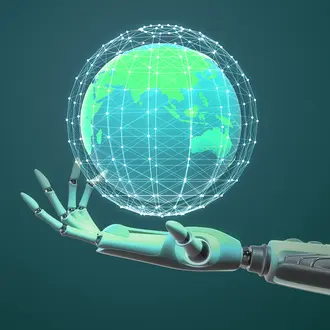Artificial Intelligence
Report finds employees embrace AI when they see its value
A new study from MIT Sloan Management review finds many employees use AI without realizing it — and without realizing how it benefits them.
For organizations to realize value from artificial intelligence, individual employees must embrace AI and clearly see its benefits.
That’s the conclusion of a new study from MIT Sloan Management Review and Boston Consulting Group, which found that 85% of people who reported that their organization obtains value from AI said they also personally obtain value from AI.
The report, “Achieving Individual — and Organizational — Value With AI,” is based on a survey of 1,741 managers and interviews with 17 executives; it outlines four types of AI companies are using. One finding was that AI can help individuals feel “more competent in their roles, more autonomous in their actions, and more connected to their work, colleagues, partners, and customers,” the researchers write.
Key takeaways from the report include:
Most people use AI without realizing it
Realizing the value of AI starts by appreciating what it can do. The survey found that people tend to underreport how much they use AI in their work, and therefore discount the value they are gaining from the technology.
Without any prompts, about 66% of survey respondents said they do not use AI in their jobs, or they only use AI minimally. When the respondents were prompted with examples of AI applications, 43% of these respondents said they do regularly or sometimes use AI at work.
“Lack of awareness can be a byproduct of the growing extent of AI use,” the researchers write. “After all, AI is often a small but critical embedded component of a larger system.” But organizations need to identify uses of AI, large and small, to understand how it contributes to value.
Companies use AI in 4 main ways
To understand the value of AI, it helps to identify main ways organizations are using the technology:
- General consumer products with AI components. This includes voice assistants like Siri or Alexa, writing apps, calendar schedulers, and office productivity applications. This is the most common use — about 79% of respondents said they use this type of AI sometimes or often.
- Business products with AI components. Some commercial solutions use AI components, such as customer relationship management software or imaging tools that help radiologists. The survey found 55% of people use these products sometimes or often.
- Customized AI-based solutions that support a specific organizational function. Some organizations use customized AI-based solutions to address specific challenges. Examples include logistics company DHL using a tool to optimize plane loads, or Porsche embedding sound processing technology in factories to detect manufacturing issues. About 43% of respondents reported using these tools sometimes or often.
- Customized AI-based solutions that support many organizational functions. Some companies are using tailored AI solutions that do many different things. Dutch airline KLM uses an AI tool to help manage the potential effects of flight cancellations, while Amazon uses custom tools for pricing, demand forecasting, and inventory management. According to the survey, this is the least common type of AI, with 37% of respondents reporting using these types of tools.
Organizations get value from AI when individuals do
The survey found that organizations get value from AI when individuals get value from AI — rather than at the expense of individual satisfaction.
Related Articles
Using AI can help people be more competent in their jobs as they make better decisions. AI tools can synthesize a lot of data quickly and accurately and make suggestions or find patterns.
Working with AI makes people feel more autonomous by helping them learn from past actions, project the outcome of current actions, and see feedback that helps improve performance. AI often helps workers to need less management oversight, which creates a feeling of autonomy and can improve job satisfaction.
Relationships are key to workplace happiness. Studies have found that using AI tools creates stronger relationships with team members, managers, and people in other departments by improving interactions and enabling collaboration. It also improves relationships with customers because it makes workers more effective and trustworthy.
Employees also develop a relationship of sorts with AI tools themselves, with 60% of respondents saying they view them as a coworker.




